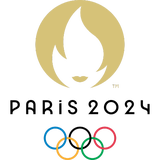
Analysis: Report lays blame, but what’s needed are solutions
DENVER (AP) — The report was every bit as thorough as it was cringe-worthy.
And yet, when it was all picked apart and combed through, there wasn't much new there.
The 233 pages of details about how Olympic leaders and the FBI responded — or didn't — to sex-abuse allegations against Larry Nassar was yet another entry in an endless exercise in looking backward to respond to a crisis that needs some new ideas before anything is truly fixed.
Hampered by their own red tape and glacial pace in grasping the enormity of the issue, neither the U.S. Olympic Committee nor USA Gymnastics — or even Congress — has come up with any ideas comprehensive enough — beyond firing everyone and blowing up organizations — to turn this ship around.
How was the report helpful?
"By understanding the failures of the Olympic community, it will enable the USOC to take action to protect athletes in the future," said USOC CEO Sarah Hirshland who, four months into the job, must wake up each day wondering what she got herself into.
Bravo to her for doing SOMETHING, anything, to try to move the ball forward.
On Monday, she swiftly canned chief of sport performance Alan Ashley, whose name was added to the long list of good guys who, when faced with suspicions that young women were being molested, responded as though the change-oil light had come on in their car instead of acting like it was people's daughters in imminent danger.
Last month, Hirshland came off as bold by starting the decertification process of USA Gymnastics, which, as the report details, was an enterprise in which two people held all the power: Super-coach Martha Karolyi had carte blanche to do, or ignore, anything so long as she kept producing gold medals, and president Steve Penny was in charge of reporting the abuse (which he did, more than once) and also, as laid out in unflinching, unflattering detail, trying to keep it quiet.
But the resoluteness of Hirshland's move masked a more difficult set of questions: What in the world replaces USA Gymnastics? And to boil it down even further, what in the world IS USA Gymnastics?
What, for that matter, is the USOC?
Nobody in the general public — the people who tune in every two years to watch dreams come true under the Olympic rings — knows, or really cares.
What all those people should know is this: Even when the skaters and gymnasts and skiers and wrestlers leave with gold medals hanging around their necks, they are often the biggest losers, too — frequently short on cash and all but devoid of any power to control or improve their own working conditions.
To the credit of Hirshland's predecessor — Scott Blackmun, who got predictably skewered in Monday's report — the U.S. Center for SafeSport came into existence on his watch, albeit five (25?) years too late and millions of dollars too short.
Despite the hearings it has held and the promises for reform, Congress is proving to be clueless and too busy with other things to effect meaningful change. Exhibit A: It recently approved $2.2 million in much-needed funding for the SafeSport Center, which is supposed to investigate every sex-abuse case reported in the Olympic sports space. But the money came with the caveat that none of it could be used for investigations . It's the equivalent of handing the local fire department a couple of envelopes full of cash but telling them they can't use it for hoses.
What CAN be done, or improved upon, to help sports at the grassroots and elite levels:
—Develop more easily understood and accessible standards for how to become a coach, and when, where and under what conditions coaches should be in contact with athletes.
—Implement a more thorough and easily understood process for everyone — coaches, parents, athletes, clubs — to access a comprehensive list of bad actors who should not be anywhere near kids.
—Provide more answers and training for parents, who give coaches the honor of molding their children and shouldn't ever feel reluctant to ask who their kids are with or what they're doing.
As the de facto leader of American sports, the USOC should oversee all that through its own programs, and through those it has entrusted to the SafeSport Center. It should place someone with good PR skills who is unafraid of the public spotlight in charge of it all.
Sprinkled throughout the 233-page report are tales of gymnasts who, over the span of years, were too scared, too intimidated, too worried they wouldn't be believed, to suggest anything was amiss at the Karolyis' training center. Who had their back? No one at the USOC or USA Gymnastics.
As a response, the USOC announced an initiative earlier this year to make it easier for athletes to cut through red tape and ask for help, whether it involves a simple problem in training or something as serious as reporting sex abuse.
The announcement deserved more attention than it got. It represented an attempt — a rare attempt, to this point — to shift away from the blame game and present a real solution for a problem that cannot be solved simply by firing everyone.
